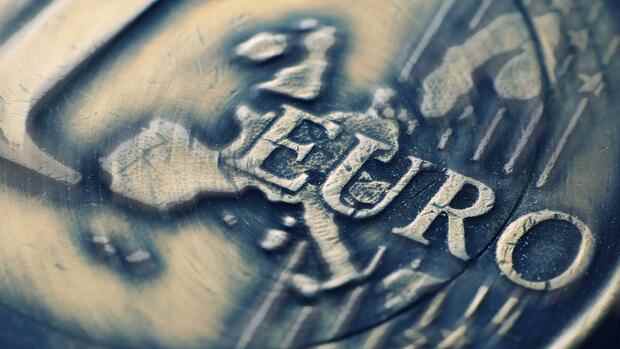The stability of the euro is in grave danger.
(Photo: imago images / Christian Ohde)
The euro should be as hard as the D-Mark. That was the big promise with the introduction of the common currency. Many did not believe it back then. Now, at the latest, one has to realize that the stability of the euro is in grave danger.
At first, the monetary policy hawk threw Jens Weidmann down in frustration. The President of the Bundesbank was almost lost to the inflationists in the Council of the European Central Bank (ECB).
On Monday, the economists of the EU rescue fund ESM presented a reform proposal that aims to undermine the debt rules of the Maastricht Treaty. Instead of a debt of 60 percent of the gross domestic product, 100 percent should now be allowed.
The signal from the ESM economists could not be more devastating. Debt countries such as Italy and Belgium see this as a license for the further march into the debt state.
Top jobs of the day
Find the best jobs now and
be notified by email.
Frugal countries like Germany have taken drastic measures, such as introducing the pension at 67. In contrast, spending-keen countries like Italy recently wanted to introduce a basic income.
Always the same salami tactics
It’s always the same salami tactic. The ESM is the best example of this. First of all, the bailout fund should only be temporary and help to overcome the debt crisis in southern Europe. The temporary construction became a billion dollar player with an eternity guarantee. Nobody took his warnings about reforms in southern Europe seriously.
A similar pattern can be seen in the allegedly one-time debt option of the European Commission. In the wake of the pandemic, she was given the opportunity to take out loans on the financial markets for the first time. Germany, which has long resisted euro bonds, swallowed it without resistance. The President of the European Court of Auditors now fears that the Member States will not adhere to the criteria for spending. Everyone could have known that.
The ECB has also adjusted its inflation target upwards in line with the motto “Never waste a good crises”. Two percent inflation is no longer the upper limit, but the goal one wants to achieve.
Anyone who has 100,000 euros in the bank is then 2,000 euros poorer. And that every year. This is an attack on the middle class. The formation of property becomes more difficult. If you want to enjoy your retirement with your savings, you can hardly defend yourself against it.
Debate about “Greenflation”
The new federal government has a special responsibility. The subject of monetary devaluation will dominate in the coming months.
There are factors that economists consider temporary. These include delivery bottlenecks and, in some cases, high energy prices. In the case of the latter, what is meant by temporary is a question of definition. “Greenflation” is already being discussed, especially in the Anglo-Saxon region.
In addition, there are long-term factors such as the massive shortage of skilled workers, which leads to wage increases. That is good news at first, but it is driving inflation. The same goes for de-globalization. When the international division of labor decreases, it becomes more expensive.
So it will be interesting to see what the traffic light coalitionists are doing about it. You can control immigration. It was announced that the EEG surcharge would be abolished. The money would have to reach the consumers and not get stuck with the suppliers. The FDP and SPD also want to hold on to the debt brake.
Soft currency with transfer union
The new federal government will have to make a personnel decision with major stability policy implications: Who will succeed Jens Weidmann? In any case, ECB director Isabel Schnabel should not be accepted by the FDP – and that is correct. Schnabel defends the ECB’s loose monetary policy and complains about critical media that fueled fears of inflation.
If Germany tips over, there is no stopping the euro. What will happen is what France and others have dreamed of: a transfer union with soft currency.
More: The time to save will come.
